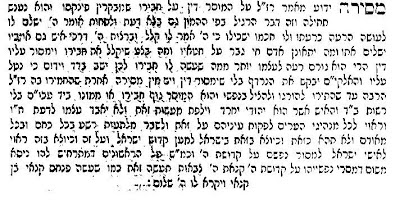Aharit.com:
ימי הצומות יהפכו לימי ששון ושמחה
בדברי הנביא זכריה 1 נאמר, שארבעת הצומות שבעה עשר בתמוז, תשעה באב, שלושה בתשרי ועשרה בטבת עתידים להתבטל בימות המשיח ולהפוך לימי "ששון ושמחה ולמועדים טובים". וכך מובא ברמב"ם 2 : "כל הצומות האלו עתידין ליבטל לימות המשיח, ולא עוד אלא שהם עתידים להיות יום טוב וימי ששון ושמחה".
נשאלת השאלה: אפשר אמנם להבין כי כאשר יבוא המשיח ותתבטל הגלות לא יהיה עוד צורך לזכור את החורבן ולהתאבל עליו, וממילא יתבטלו גם הצומות הללו, אבל מדוע יהפכו הם לימי ששון ושמחה ולמועדים טובים?
התשובה על כך היא: היות וחזון הגאולה פעם בחוזקה בלב עם ישראל בצומות אלו יותר מבשאר ימות השנה, והיות והגאולה מותנית בכך שעם ישראל יצפה ויכסוף לה, כפי שאמרו חז"ל 3 : "דור שהוא מצפה למלכותו, מיד הם נגאלים, שנאמר: ויש תקוה לאחריתך ושבו בנים לגבולם" 4 , נמצא שימי הצומות הללו היו אמצעים לגאולה, שכן הצפיה בימים אלו לגאולה היא זו שקירבה את הגאולה, ובדין הוא שנשיש ונשמח בימים השותפים לגאולה.
הערות
1.
ח, יט.
2.
פרק יט מהלכות תענית הלכה יט.
3.
ילקוט שמעוני, איכה.
4.
וכן מובא בילקוט תהלים רמז תשל"ו: "אפילו אין ביד ישראל אלא הקיווי התקוה והצפיה לגאולה, כדאי הם לגאולה בשכר הקיווי".
ועל פי זה ביאר החיד"א בספר מדבר קדמות, ערך קיווי, את הנאמר בתפילת שמונה עשרה: "את צמח דוד... כי לישועתך קוינו כל היום". כלומר: מבקשים אנו מאת הבורא "את צמח דוד עבדך...". ואם תאמר שאין לנו זכות, מכל מקום "תצמיח". מדוע? "כי לישועתך קוינו", יש לנו קיווי וצפיה, ובשכר הקיווי והצפיה כדאי שתגאלנו.
וכן מובא בספר הכוזרי מאמר ה, פרק כז: "אתה תקום תרחם ציון כי עת לחננה כי בא מועד, כי רצו עבדיך את אבניה ואת עפרה יחוננו. רוצה לומר, כי ירושלים אמנם תיבנה - כשיכספו לה ישראל בתכלית הכוסף עד שיחוננו אבניה ועפרה".
My translation:
The Days of Fasting will Turn into Joy and HappinessIn the words of the prophet Zecharia
1, it's said that the 4 fasts - the 17th of Tammuz, Tish'a Be'av, the 3rd of Tishri and the 10th of Tevet - are destined to be cancelled out during the days of Mashiah and will be transformed into days of "joy and happiness and festivals". And similarly, it's brought in the Rambam:
2 "All these fasts are destined to be cancelled in the days of Mashiah and not only that, but they are destined to become days of festivals and days of joy and happiness."
The question is asked: It's possible to understand that when Mashiah will come and the exile will be cancelled, there will no longer be a need to remember the destruction and to mourn over it, and by default, these fasts will also be cancelled out, but why will they transform into days of joy, happiness, and festivals?
The answer for this is the following: Since the vision of Ge'ula beats strongly in the hearts of the Nation of Israel during these fasts more than the other days of the year, and since the Ge'ula is conditional on the fact that the Nation of Israel will expect and long for it - just as Haza"l say
3: A generation that expects His kingdom will immediately be redeemed, as it
says4 "And there is hope for thy future, saith the LORD; and thy children shall return to their own border" - it comes out that the days of these fasts are a means toward Ge'ula, since the expectation during these days for Ge'ula is itself the thing that will bring the Ge'ula, and it is only right that we should be joyous and happy during days that are partners with Ge'ula.
Footnotes1. 8:19
2. Hilchot Ta'anit 19:19
3. Yalkut Shimoni, Eicha
4. And similarly, it's brought in the Yalkut Tehilim - Remez 736: "Even if all Israel had [in terms of merits] was the hope and expectation for the Ge'ula, they are worthy of the Ge'ula for the reward of their hope."
And based on this, the Hid"a explained in his book "Midbar Kedeimot" - in the entry "Kivui" - that which is said in the Shemoneh Esrei prayer: "את צמח דוד... כי לישועתך קוינו כל היום". This means to say: We are requesting from the Creator "את צמח דוד עבדך..." And if you will say that we don't have the merit, nevertheless, תצמיח (make it sprout) anyways. Why? "כי לישועתך קוינו" (for we
hope for Your salvation) - we have hope and expectations, and in the reward of our hope and expectation, it's worth it for You to redeem us.
And it's also brought in the Sefer Kuzari, Ma'amar 5: Chapter 27: "
אתה תקום תרחם ציון כי עת לחננה כי בא מועד, כי רצו עבדיך את אבניה ואת עפרה יחוננו. (Thou wilt arise, and have compassion upon Zion; for it is time to be gracious unto her, for the appointed time is come. For Thy servants take pleasure in her stones, and love her dust.) It means to say that Yerushalayim will indeed be built when the Jewish people will long for it with the epitome of longing until they will cherish her stones and dust."








